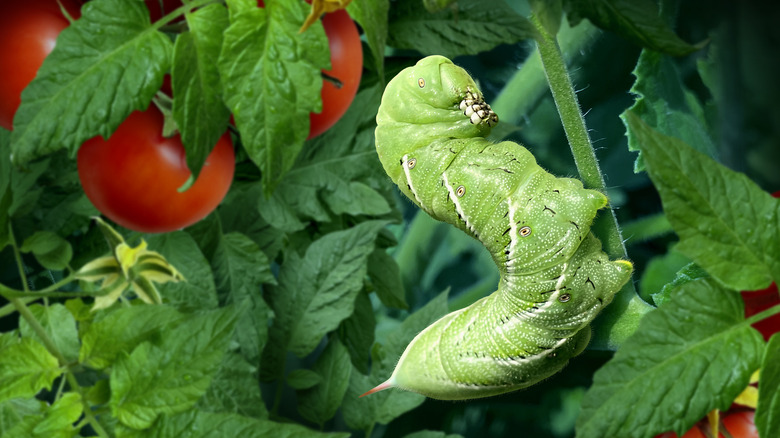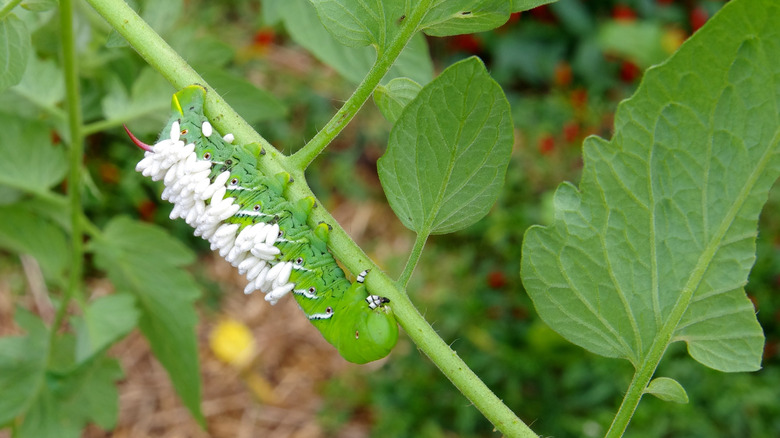Why You Might Want To Think Twice Before Killing Tomato Hornworms In Your Garden
Tomato hornworms (Manduca quinquemaculata) can cause serious issues for your tomatoes. Not worms at all, these are caterpillars that can quickly eat tomato plants down to nubs. What many gardeners don't know is that these large green caterpillars eventually turn into beautiful, dusk-feeding sphinx moths, also known as hawk moths. If you aren't sure if you have these critters in your garden, you can shine a blacklight on your tomato plants to check. But rather than looking at tomato hornworms as pests, gardeners can shift their perspectives and treat hornworm caterpillars as an important food source for beneficial insects.
Some paper wasps (Polistes spp.) act as predators of hornworms, feasting on them directly. But there are also parasitic wasps, such as Braconid wasps, (scary sounding wasps that can also help you control aphids) that make use of the caterpillars to raise their young. Parasitic wasps lay their eggs inside hornworms, and these parasitized caterpillars can be recognized by the rice-like cocoons emerging from their bodies. This process will eventually kill the caterpillars, so parasitized hornworms should not be moved, in order to ensure future populations of these helpful wasps. By providing food for natural enemies of these tomato menaces, beneficial insects can help us keep other pests in check as well.
How to attract hornworm enemies and what to do when it's not enough
Wasps aren't the only beneficial insects that can use tomato hornworms as food. Ladybugs and green lacewings also help keep tomato hornworm populations in balance, by feeding on the eggs. And, while tomato hornworm caterpillars provide food for parasitic wasp babies, the adults need flowers to feed on, as do other beneficial insects. Gardeners can encourage a diverse population of helpful insects by growing lots of flowering plants. To attract parasitic wasps in particular, consider growing flowers such as zinnias, marigolds, and sweet alyssum, which is a beautiful plant that'll keep hornworms from destroying your tomatoes.
Keep in mind that these hefty caterpillars will eat other members of the nightshade family in addition to tomatoes. If you find them on your tomatoes, eggplants, peppers, or potato plants, and they haven't yet been parasitized, tomato hornworms can be picked off by hand and relocated away from crops to other plants such as nightshade weeds which may also be growing in your garden.

